7. Secrets of the Heart (Secretos del corazón, 1997) – directed by Montxo Armendáriz

One of the better Spanish films from the 90s came from director Montxo Armendáriz, who also made the excellent drama “Tasio” (1984). “Secrets of the Heart” was a big commercial and critical hit in Spain, and was nominated for the Academy Award for Best Foreign Language Film, but in spite of that, it sadly stayed off the radar for many viewers outside of Europe.
The story is set in 1960’s Spain and revolves around young boy, Javi (Andoni Erburu), whose mind is full of unanswered questions. His older brother, Juan (Álvaro Nagore), tells him about the secret of the forbidden room in their village house. Javi wants to discover the truth of the mysterious voices behind the closed doors, which will lead him to many more discoveries about his family and the mysteries of life.
The setting of Franco’s Spain was very well used to convey the restrained life of people and Javi’s burning curiosity. Politics are not explicitly discussed in the film; everything is in the background, but the influence is clear. Rules imposed by the Catholic church are a big part of everyday life. Many things are forbidden, such as sex before marriage or not obeying to the orders of priests and adults.
Strict rules from Catholic schools make our hero confused when his perceived notions of reality are not met. He will have to learn the secrets of life and the heart by himself, while innocence is lost and the illusions of life are broken.
The direction is subtle and wonderful actors are given lots of space; Erburu as Javi is great and the rest of the cast is very balanced in its quality. “Secrets of the Heart” is an underrated and rewatchable work from a very talented director.
6. Tacones lejanos (High Heels, 1991) – directed by Pedro Almodóvar
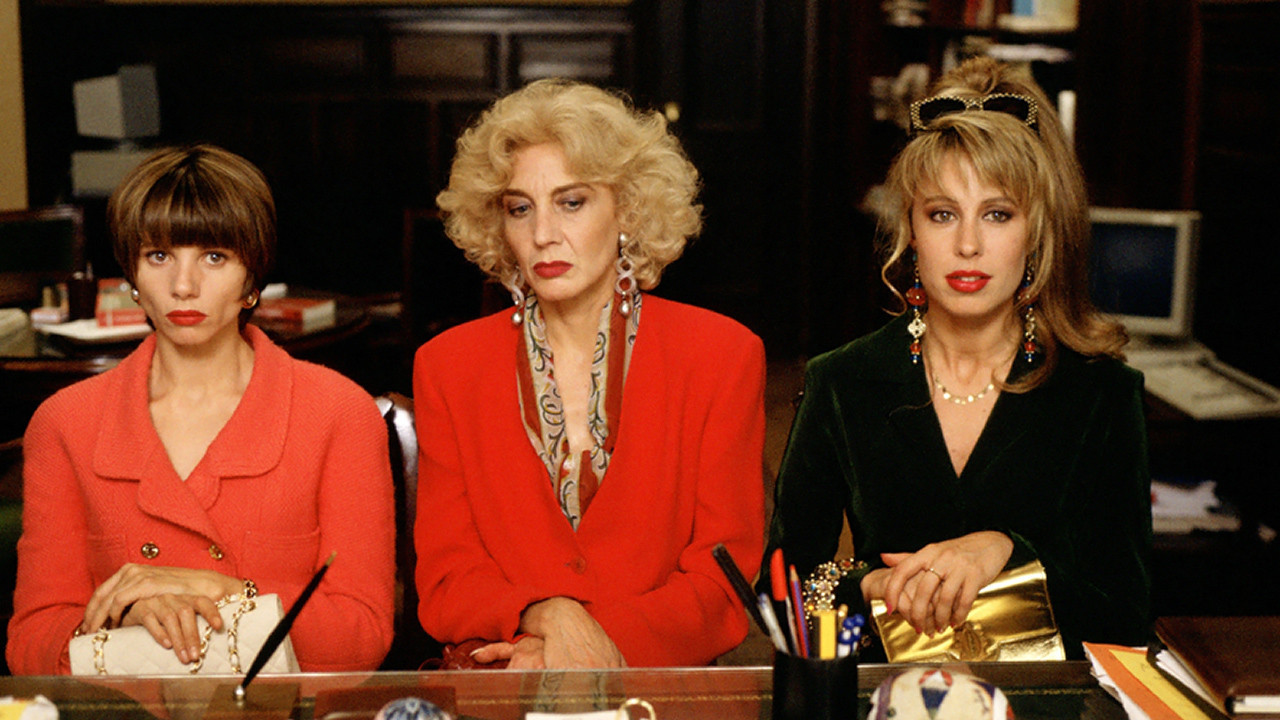
This film came at the beginning of the second phase of Almodóvar’s career, a phase in which he was ostensibly less provocative and more ‘audience friendly’ than in his first phase. But that turned out to be just a trick of his, because many movies from this period show Almodóvar at the height of his strengths as an author, and when you scratch the surface, they are equally provocative and ready to bite like his earlier movies; in this case, he just decided to put all his preoccupations in a more friendly context.
“High Heels” is his successful attempt to make a family melodrama, which would also be a homage to the classical Hollywood melodramas of the 40s and 50s, and he made an explosive, emotional, and masterfully crafted film, one of the best and most underrated films in his career. The film tells the story of Rebeca (Victoria Abril), a TV newscaster who tries to reconnect with her mother, Becky (Marisa Paredes).
Becky abandoned Rebeca for her singing career but the two want to strengthen their relationship, although Rebeca still has bitter feelings toward her mother because of the past events. Rebeca is in loveless marriage with Manuel (Féodor Atkine), an ex-lover of Becky. He wants to leave his wife and continue his relationship with Becky. All of this leads to a murder and investigation led by Judge Eduardo Dominguez (Miguel Bosé), who hides some important secrets in order to find the murderer.
Almodóvar’s direction is assured, and also gives lots of space to the actors. This is unquestionably an Almodóvar film – funny, tragical, serious, playful, and provocative. Beautifully shot and scored (the songs from the film became big hits, especially in Europe), this is another underrated Almodovar film waiting to be rediscovered.
5. The Sea (El mar, 2000) – directed by Agustí Villaronga
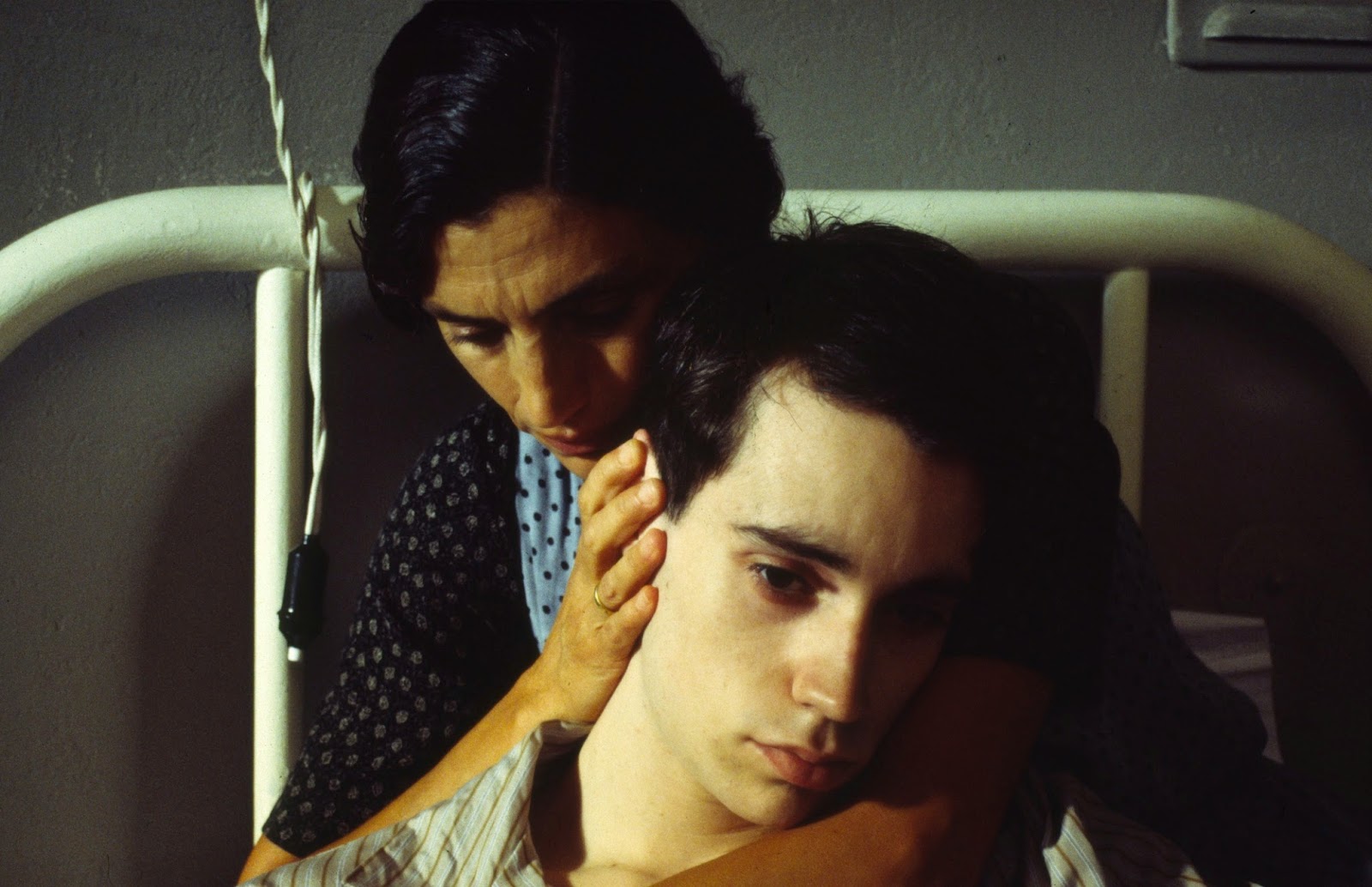
Rarely are we able to witness a film like this that so powerfully captures the influence of war on children and – more importantly – how they cope with the demons of the past as adults long after the war.
The main characters of this dark and brave film are Ramallo (Roger Casamajor), Manuel (Bruno Bergonzini), and Francisca (Antònia Torrens), who were all witnesses of a brutal murder of a boy, Julià (Sergi Moreno), by another boy, Paul (Tony Miquel Vanrell), in their village during the Civil War when they were kids. Paul, who is unable to cope with his crime, commits suicide, and this event will leave a deep mark on the children’s lives.
Years later, they meet at a tuberculosis sanatorium. Ramallo and Manuel are patients of the sanatorium while Francisca is a nun helping the patients at the hospital. Both Manuel and Francisca always had a crush on Ramallo. Old demons and hidden passions come to the surface and again lead to a fight between past and present, faith and passion, with death appearing again as the omnipresent factor in their lives.
This is not a horror film, but Agustí Villaronga knows how to produce deep existential horror in our heroes. Also, body horror is very much present and inseparable from their lives, from the beginning of the movie and especially during the scenes in the sanitorium.
The collision between past and present, tortured sexuality, death, faith as the escape from death, and desires that people perceive as negative, are the main elements of this dark drama. It’s not an easy film to watch, but certainly one of the best works of this criminally underrated Spanish director.
4. Perdita Durango (1997) – directed by Álex de la Iglesia
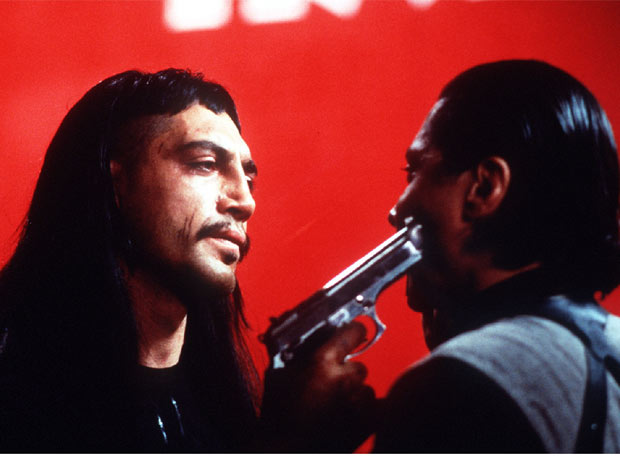
“Perdita Durango” is an adaptation of Barry Gifford’s novel ”59° and Raining: The Story of Perdita Durango”, and the title character first appeared in David Lynch’s excellent movie “Wild at Heart”, which was also based Barry Gifford’s novel of the same name.
The two movies share some similarities – both are road trip movies featuring a couple on the run from gangsters, and both go into some very disturbing places with the portrayal of its characters and the world around them. However, “Perdita Durango” is very different film, and a far more horrific beast.
The characters of Perdita (Rosie Perez) and Romeo (Javier Bardem) are quite different from Lynch’s Saylor and Lulu – both are people with the souls that are black as night and engaged in far more dangerous things than Lynch’s main characters. The world of this film is dangerous to the core, and you have the sense that the most horrible things can happen at any moment.
Director Alex de la Iglesia offers us a blackly funny, satirical, and horrific portrayal of the world where human life does not mean a thing and love is a lost emotion. But the main characters, no matter how horrific the actions they commit may be, are shown as a very likeable couple – they are the only ones feeling real love for each other. Both have seen their destinies and want nothing in common with the ‘normal’ world.
The acting is superb, from both the lead and supporting characters. De la Iglesia directs the film with a manic energy, mixing action, black humor, and horror with a perfect sense of timing.
The film was received with mixed reception from audiences and critics; many expected another Tarantino-style film but they got something very different, a very anarchic film with a mix of black comedy, action, and horror with lots of very effective satirical moments, and certainly a film that’s far more explicit in its violence. It’s a film that deserves far more praise than it gets – it’s a wonderful, colorful gem from the 90s.
3. Black Bread (Pa negre, 2010) – directed by Agustí Villaronga
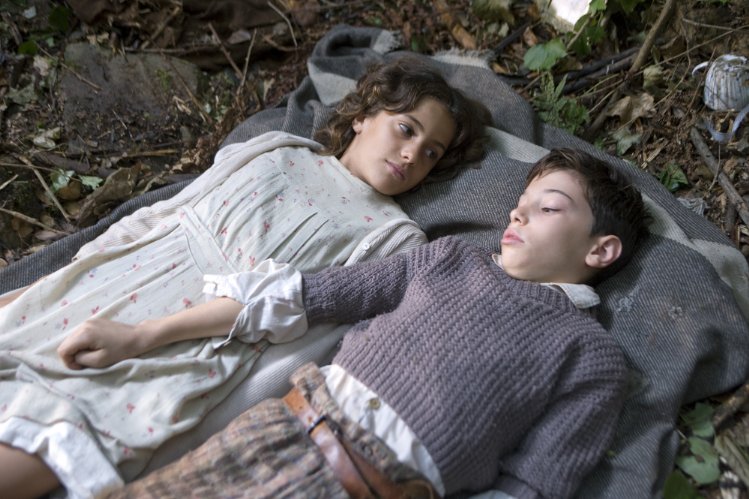
“Pa negre” contains Villaronga’s typical themes – corruption and the breakdown of a child’s ideals about life and the world of the grown-ups (this time set against the backdrop of the post-Spanish Civil War period). Villaronga shows us all the manipulations and lies of the grown-ups through the eyes of a boy, Andreu, whose father was accused of murdering a man, a bird seller, and his son.
Andreu does not believe that his father is guilty and tries to help him by searching for the real killer; he will discover how far people can go for their selfish interests, but can he find a way to fight against these kinds of horrors? And how will he be affected by all this?
Villaronga is again in full form showing us the psychological portraits of people in small communities. Also, the countryside is full of legends, with stories about the monsters and evil entities in the woods and caves. What is truth and what is reality? Who is innocent and who is guilty? And more importantly, is there a clear distinction between the two?
The acting is perfect, the direction is superb, and the camera catches all the nuances of beauty and horror of the world where our characters try to live and survive. Villaronga is master of horror and he’s made some great horror films, but this film is not a horror film by genre – it’s a drama about Spanish people in the post civil war period.
However, he is capable of catching all the subtle nuances of the horror in humans in these kinds of situations. Gritty and dreamy at the same time, full of beauty and terror, this is a portrait of lost innocence and one of the best films of the 21st century.
2. The Day of the Beast (El día de la bestia, 1995) – directed by Álex de la Iglesia

This is Álex de la Iglesia’s second film, made after his very interesting debut “Mutant Action” (“Acción mutante”). It’s a brilliant satirical black comedy-horror about the end of days, starring Álex Angulo as Ángel Berriatúa, a priest who decides to commit as many sins as possible so that he can lure in the Antichrist and kill him. His sidekick is José María (Santiago Segura), a salesman of heavy metal records, and Professor Cavan, a TV ‘expert’ on the occult.
It’s a smart satire, and scary and very funny movie with loads of black humor, energetically directed in the usual Álex de la Iglesia style. The acting is equally great (especially Segura, who is at the top of his game here).
De la Iglesia clearly has a penchant for anarchic characters and situations, and that shows through his films and direction style. The worlds of his heroes are very circus-like where everybody is allowed whatever they want to reach their goals, and for every violent anti-hero there is always somebody who is much more violent and immoral.
Everything is allowed; morals do not exist and are mocked in all his movies. The only redemption can be found in pure wild love without any boundaries, and completely giving oneself to their instincts. All of this gives a refreshing look at older genres and situations, and is perfect for the stories of de la Iglesia’s films.
1. In a Glass Cage (Tras el cristal, 1986) – directed by Agustí Villaronga
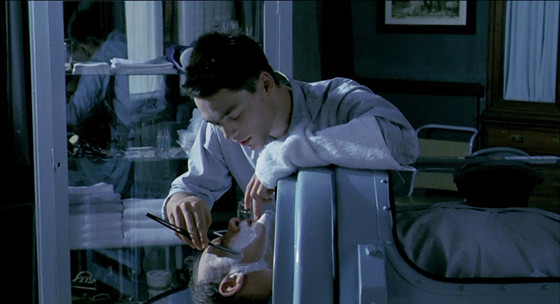
“Tras el cristal” is Agustí Villaronga’s masterpiece and certainly one of the best film debuts of all time. Villaronga (who is definitely one of the most underrated directors) was a really brave and smart man when he succeeded in getting this film made. Central to the film is the theme of the relationship between the abuser and the abused.
The film’s effectiveness lays in the way past events are brought back through reliving the suppressed traumas. The physical isolation of the characters is paralleled through their inability to escape past nightmares.
Human darkness and depravity were made alive here in a deeply disturbing way. Very little violence is actually shown; it is more based on suggestion, and in this case it makes it far more effective. The film grabs you, consumes you slowly, and never lets you go until the extraordinary finale.
Villaronga builds tension slowly, increasing the amount of terror and claustrophobia until you almost can’t take it anymore. The sets are bathed in cold blue and the music is menacing and very effective, and features great performances from Gunter Meisner, Marisa Paredes, and David Sust. It’s one of the most disturbing films of all time, and one of the best Spanish films – truly a remarkable achievement.
Author Bio: Saša Avramović is a student of Geography living in Jagodina, Serbia. His primary focus of interest is cinema – in his spare time he watches films as much as he can and reads about them. He would like to become a film director (currently making her first short film).